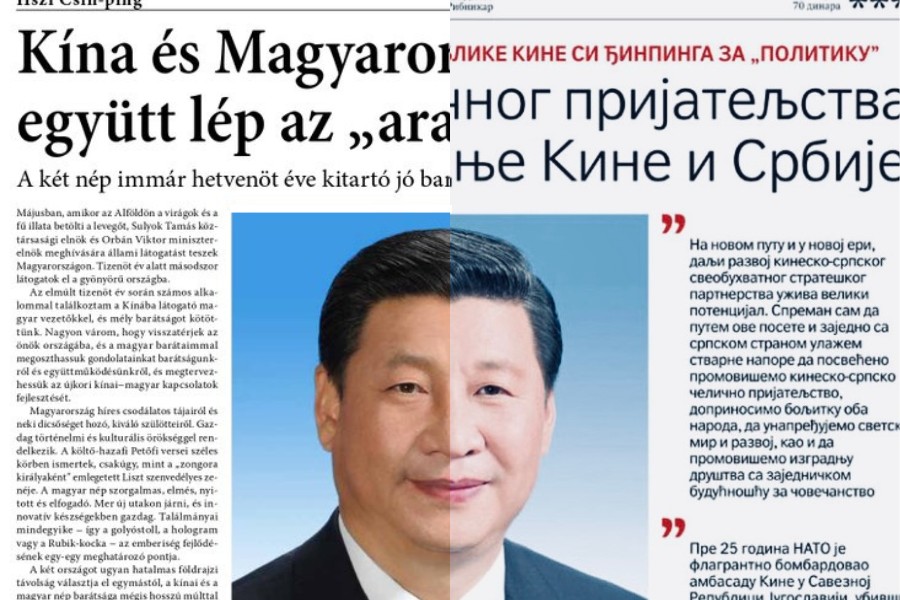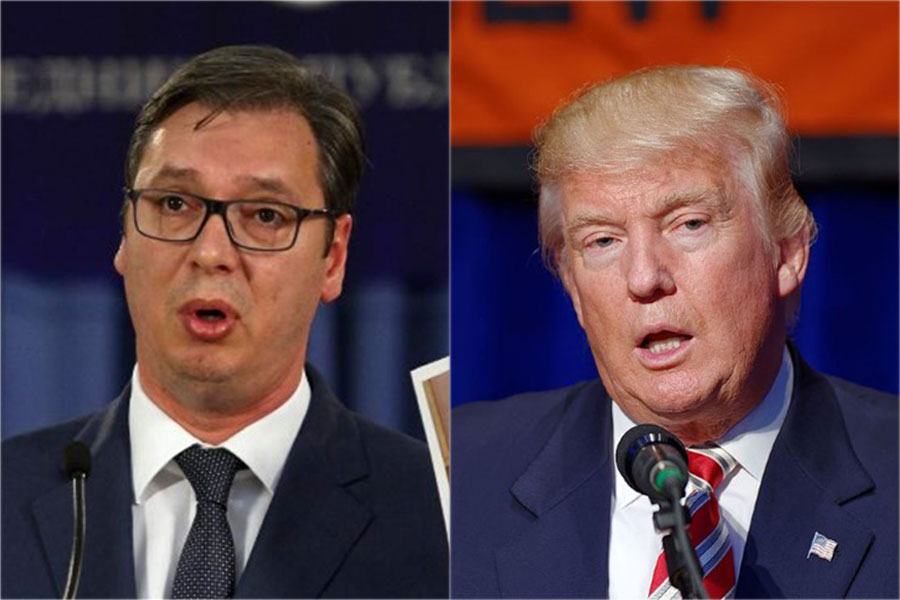“When I came to [daily newspaper] Borba in 1990, he was a reporter and political analyst, and known for writing a couple of pamphlets, one of which I remember was about the people from Goli Otok [political prison in Socialist Yugoslavia],” Gunjic recalled.
“Slavko Curuvija was one of the best journalists at that Borba, which was an old newsroom which employed, as far as I remember, 200 journalists,” he told BIRN.
Curuvija, who was born in 1949, was shot dead on April 11, 1999 in broad daylight in central Belgrade. Belgrade Higher Court will deliver its verdict in the retrial of four men accused of involvement in the crime on Thursday.
The original indictment did not identify who ordered the killing, but only said Radomir Markovic, then head of Serbian State Security, abetted the crime, and three security service officers – Ratko Romic, Milan Radonjic and Miroslav Kurak – took part in the organisation and execution of the murder. Kurak was initially named as the direct perpetrator, and Romic as his accomplice.
Markovic, Radonjic and Romic pleaded not guilty, while Kurak is on the run and is being tried in absentia.
When it came to who committed the murder, the first-instance verdict in the trial in April 2019 diverged from the indictment by saying that the journalist was killed by an “unknown perpetrator”, rather than by Kurak.
The introduction of the “unknown perpetrator” into the verdict was why the Belgrade Appeals Court quashed it and ordered a retrial.
Curuvija was one of several victims of political assassination during the rule of Slobodan Milosevic in the 1990s and the second journalist to be killed.
The trial established that he had been followed for months by Milosevic’s security service before he was shot dead, as Gunjic pointed out.
“Not only was he killed, he had the entire state apparatus around his neck for a year before that, maybe a couple of years before that, and we know that they had been eavesdropping on him since at least October [1998], and some say since the summer of that year,” said Gunjic, who is now editor-in-chief of the Cenzolovka website, which covers media issues.
Curuvija’s journalistic courage
Curuvija’s journalistic career started in the late 1980s, when he joined Borba, which was one of the most prominent newspapers in socialist Yugoslavia. Among other things, he wrote about cases of people who had been politically persecuted and then jailed by the Yugoslav authorities at the prison camp on the northern Croatian island of Goli Otok.
In the years after the death of President Josip Broz Tito in 1980, some freedoms had opened up for journalists across Yugoslavia. But as Slobodan Milosevic’s power grew in the late 1980s, the majority of media, which were still owned by the state, increasingly came under the regime’s control – although Borba had a little more space to manoeuvre because of its ownership structure.
Yugoslav historian Branka Prpa was Curuvija’s partner and was there when he was shot. Prpa said that as a journalist, Curuvija drew attention to one of the key problems with the Yugoslav system in the post-World War II period – “that early period of totalitarianism, which was connected with the Inforbiro [the central organisation of the International Communist Movement at the time] and the creation of the camp on Goli Otok and the large numbers of political convicts at that time”.
“Drawing attention to those kinds of problems really required journalistic courage at that time,” Prpa told BIRN.
Around 1993, Curuvija become Borba’s editor-in-chief, and Gunjic said that he showed how much of a moderniser he was when he asked younger journalists to create “the first section dedicated to pop and rock music in [Serbian] daily [newspaper] journalism, as far as I remember”.
“I remember that in those times, which were very turbulent and very tragic, Slavko actually brought not only fresh air to that newspaper, but also revived it in many ways, in the editorial sense,” Gunjic said.
“Slavko was an energetic man, very charismatic at the same time, and he knew how to win over and bring together that young team of journalists, from whom, of course, he also brought ideas, and we learned a lot from him because he really had something to teach us,” he added.
Violence escalates, backlash intensifies
After Curuvija left Borba in 1994, he and Momcilo Djorgovic founded news magazine Telegraf, then two years later, Curuvija founded daily newspaper Dnevni Telegraf.
Perica Gunjic was on the staff from the beginning and explain the magazine had “something that even then was called the tabloid approach”.
“He was known for those big headlines, sensational and exclusive,” he said. “But everyone who remembers that knows that there is drastic difference between today’s tabloids and that magazine, which was a tabloid but I don’t remember that there were ever articles about someone’s private life, nor were scandals fabricated.”
Established a couple of months before the outbreak of mass demonstrations against Milosevic regime over fraud in elections in late 1996, Dnevni Telegraf managed to gain a large circulation, further increasing Curuvija’s profile and his range of contacts.
“He was a professional first of all, who of course had contacts with politicians, about which he was often later accused, especially over his contact with [Slobodan Milosevic’s wife] Mira Markovic, but we all know that in those contacts he was very open and direct, that he was there primarily as a journalist and as a professional,” Gunjic said.
Milosevic survived several months of mass demonstrations, but the next big crisis of his rule was on its way as the Kosovo Liberation Army gathered strength in its armed campaign against Serbian repression of ethnic Albanians. Attacks on Serbian policemen and other violent incidents became more common in Kosovo in 1997 and early 1998.
On March 5, 1998, Serbian police special forces attacked the Jashari family compound in Prekaz/Prekaze, a village in Kosovo’s central municipality of Srbica/Skenderaj. Officially, they were there to arrest Adem Jashari, one of the KLA’s founder, who had been designated a terrorist by the authorities in Serbia.
During the two-day armed operation, Jashari and 58 of his relatives were killed, and their deaths are credited with boosting public support among Kosovo Albanians for the KLA’s armed struggle, effectively starting the Kosovo war.
Curuvija and other editors-in-chief were summoned to the police on March 9 after reporting on the Jashari incident.
Prpa said that during Curuvija’s interview with the police, “he stated in writing why he used the term ‘Albanians’ [for the Jashari family] and not ‘terrorists’, writing that he could not call women and children terrorists”.
Gunjic explained that at the time, journalists who wrote truthfully about the Yugoslav wars, and the Kosovo conflict in particular, were “very seriously attacked” by the Milosevic regime. Curuvija was not the only one to write about what was happening in Kosovo, but he did it “in his own, special way”, he added.
“Slavko knew how to reach a huge audience, and that obviously caused him to be monitored, eavesdropped and who knows what else they did,” he said.
Assets seized, publications banned
By the end of 1998, the situation had deteriorated even further.
“A month ago, I was a successful publisher and owner of two influential and popular publications, daily newspaper Dnevni Telegraf and news magazine Evropljanin,” Curuvija told the US Congress’s Helsinki Commission in December.
“Mr. Chairman, I stand before you today as a man whose company has been ruined, whose publishing house assets have been seized and whose publications have been banned by Slobodan Milosevic’s regime,” he added.
Curuvija was speaking after the Serbian government imposed a decree and then a law in the autumn of 1998 which enabled it to ban newspapers, confiscate their equipment and fine and jail journalists. This happened at the point when the Kosovo conflict was heating up and NATO began threatening to bomb Yugoslavia to make Milosevic end his campaign of repression.
On October 13, 1998, Dnevni Telegraf’s front page headline said that “NATO approves the attack, does Milosevic accept the plan [to withdraw his forces from Kosovo]?”
As Curuvija explained in his speech in the US, “the Ministry of information determined that this straightforward news reporting fell under the category of spreading fear and defeatism”.
On October 19, 1998, in Evropljanin, Curuvija and colleague Aleksandar Tijanic then published a letter to Milosevic, urging him to make serious political changes.
“We are writing to you regarding freedom of the press. However, our concerns are far more serious. Martial law and rule by decree have been introduced in Yugoslavia, although a state of emergency has not formally been declared,” they wrote.
They told Milosevic that he had “exhausted the support entrusted in you by the majority of Serbs when you assumed power”, and said that “everything that Serbs created in this century has been thoughtlessly wasted”. Five days later, the magazine was heavily fined and shortly afterwards, all its equipment, including its furniture, was seized.
Branka Prpa recalled that their home was also raided: “One of the things that happened then was that at 9 o’clock in the evening, they came to our house, the armed police, allegedly the financial police, with automatic rifles, and prevented anyone from entering and leaving the house,” she said.
Talking to the BBC that month, Curuvija said that the state “wanted to destroy me economically” and muzzle his media outlets.
“They thought I would stop publishing, but I didn’t. Because, you know, we are very radical critics of their policy here and I refused to be controlled, I must tell you, and that is really one of the main reasons why they’ve done what they’ve done to us,” he added.
Instead of disappearing from the Serbian market, Curuvija’s newspapers were being smuggled into the country, mostly from neighbouring Montenegro, which at the time was being used as a safe haven by Milosevic’s opponents.
But Curuvija decided not to leave Serbia.
“He told me: ‘I’m not going anywhere.’ To which I said: ‘Are you normal? They’re going to kill you,’” recalled Prpa.
“‘Well,’ he said, ‘if they think they can get rid of me like that, kill me, let them kill me.’”
By March 1999, the situation had worsened yet further as NATO began its air strikes on Yugoslavia and Curuvija had a bitter row with Milosevic’s wife Mira Markovic, his daughter Jelena Curuvija testified during the murder trial.
“After their conversation, their relations deteriorated because he said what they [Milosevic and Markovic] were doing for the country was not good and added they would be hanged on [central Belgrade street] Terazije for that,” Jelena Curuvija said.
Pro-government newspaper Politika Express then published a story with a headline claimeing that “Curuvija welcomes the bombs”, suggesting that he supported the NATO air strikes and effectively accusing him of being a traitor.
A few days later, he was assassinated.








 Deset medijskih sporazuma za „zajedničku budućnost” sa Kinom, zemljom cenzure i progona novinara
Deset medijskih sporazuma za „zajedničku budućnost” sa Kinom, zemljom cenzure i progona novinara Kako ojačati lokalne medije i obnoviti informisanje o radu opštinskih vlasti: Britansko rešenje daje rezultate
Kako ojačati lokalne medije i obnoviti informisanje o radu opštinskih vlasti: Britansko rešenje daje rezultate Vučić i Tramp: Netrpeljivost prema medijima i podrugljivo odbacivanje drugačijeg mišljenja
Vučić i Tramp: Netrpeljivost prema medijima i podrugljivo odbacivanje drugačijeg mišljenja
Ostavljanje komentara je privremeno obustavljeno iz tehničkih razloga. Hvala na razumevanju.